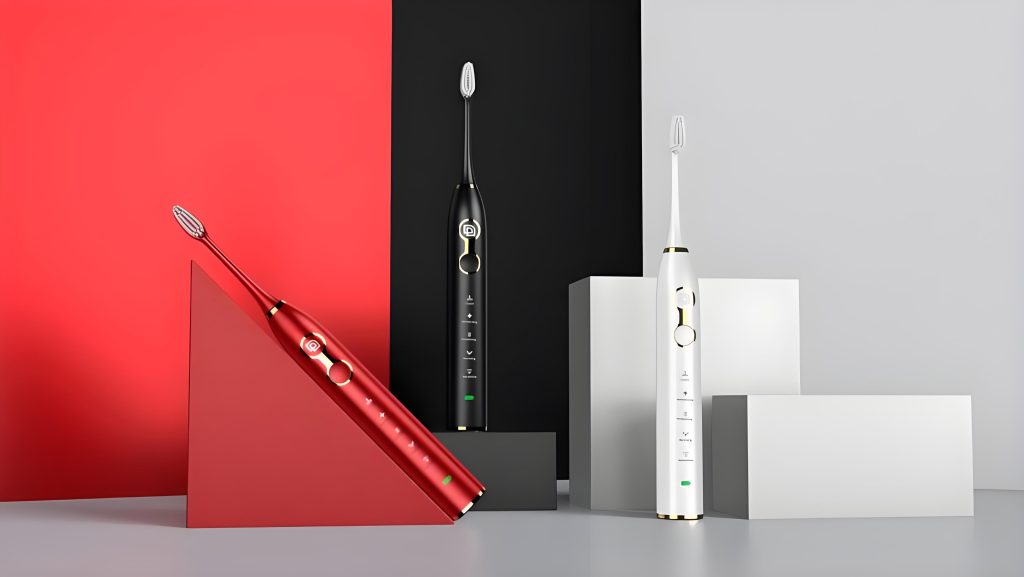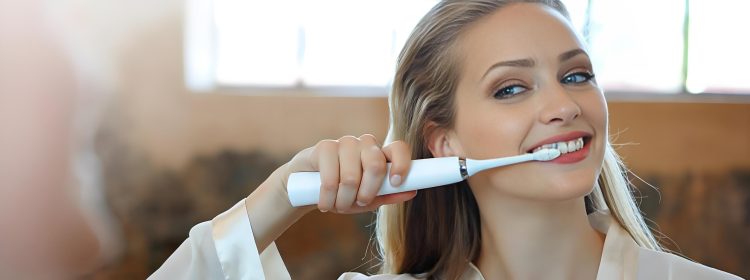In the grand tapestry of daily hygiene habits, the humble toothbrush often plays a supporting yet indispensable role. We reach for it morning and night, sometimes even in between, entrusting it with the vital task of maintaining our oral health. Yet, despite its frequent use, many of us overlook one crucial aspect of toothbrush care: regular replacement. The act of swapping out your toothbrush for a fresh one might seem like a minor detail, but it’s actually a cornerstone of a healthy mouth. Let’s delve into why periodically renewing your toothbrush is vital, how often you should do it, and the benefits that come with this simple yet significant habit.

The Wear and Tear of Everyday Use
Think about it: your toothbrush is constantly exposed to a hostile environment—your mouth. It scrubs against the enamel of your teeth, slides between tight gaps, and navigates around sensitive gum lines. Over time, this relentless action leads to wear and tear. Bristles, which are initially stiff and robust, begin to fray and soften. This degradation isn’t just aesthetic; it impacts functionality. Frayed bristles are less effective at removing plaque and food particles, which can lead to cavities and gum disease if left unchecked.
Moreover, the structure of the toothbrush head can become distorted, making it difficult to access all areas of your mouth properly. This is particularly problematic in hard-to-reach spots like the back molars and the space between teeth, where plaque loves to linger. An inefficient toothbrush is like a soldier without a sharp sword—it just can’t do its job as well.
Bacterial Buildup: A Silent Threat
Even if your bristles are still intact, they harbor bacteria over time. Every time you brush, a small amount of saliva, food residue, and bacteria gets left behind on the bristles. While rinsing helps to mitigate this, it doesn’t eliminate the problem entirely. Over weeks and months, these microorganisms can proliferate, potentially reintroducing harmful bacteria back into your mouth during subsequent brushings.
This bacterial buildup is particularly concerning for individuals with compromised immune systems, as it could exacerbate existing oral health issues or even lead to infections. For everyone else, it’s a silent threat that gradually undermines the cleanliness you strive for with daily brushing.
The Optimal Replacement Schedule
So, how often should you be replacing your toothbrush? The general consensus among dental professionals is to swap it out every three to four months. This timeline ensures that your toothbrush maintains its effectiveness and stays relatively free of excessive bacterial accumulation. However, there are situations that might necessitate more frequent replacements:
- Illness: If you’ve been sick, particularly with a cold or flu, it’s advisable to replace your toothbrush immediately after recovering to avoid reinfecting yourself.
- Visible Wear: If you notice your bristles fraying or bending before the three-month mark, don’t hesitate to get a new one.
- Shared Brushes: If multiple people use the same toothbrush (which isn’t recommended), replace it more frequently to prevent the spread of germs.
Electric toothbrush heads should follow a similar replacement schedule, though some models indicate when it’s time for a change through built-in sensors or visual cues.
The Benefits of a Fresh Toothbrush
Adopting a regular toothbrush replacement habit yields a multitude of benefits:
- Improved Plaque Removal: Fresh bristles are more effective at disrupting plaque biofilm, the sticky film of bacteria that forms on teeth. This helps prevent cavities and gum inflammation.
- Enhanced Gingival Health: Healthy gums are the foundation of a beautiful smile. Regularly replacing your toothbrush ensures that you’re using a tool capable of gently massaging and cleaning the gum line, promoting circulation and reducing the risk of gingivitis.
- Fresh Breath: A new toothbrush does a better job of cleaning the tongue and the back of the throat, areas where bacteria can thrive and contribute to bad breath.
- Cost-Effective Prevention: Preventing dental problems is always cheaper than treating them. Regular toothbrush replacements are a small investment that can save you significant money on dental bills in the long run.
- Environmental Considerations: While it might seem counterintuitive, regular replacements can also be more environmentally friendly if you opt for eco-friendly toothbrush options made from biodegradable materials or those that come with replaceable heads.
Choosing the Right Toothbrush
When selecting a new toothbrush, consider both personal preference and dental needs. Soft-bristled toothbrushes are generally recommended as they are gentle on enamel and gums, reducing the risk of abrasion. Electric toothbrushes, with their oscillating and rotating movements, can be especially effective for those with braces, implants, or other dental work.
Don’t forget to pay attention to the handle. It should be comfortable to grip and easy to maneuver, ensuring that you can brush effectively for the recommended two minutes each session.
Incorporating the Habit into Your Routine
Making toothbrush replacement a habit involves a bit of planning. Mark the date you start using a new toothbrush on the calendar or set reminders on your phone. Consider purchasing in bulk to save money and ensure you always have a spare when the time comes for a replacement.
Including your family in this practice can also make it more of a routine. When everyone in the household is aware of the importance of regular replacements, it becomes easier to maintain.
Conclusion: A Smile Worth Preserving
Your toothbrush is more than just a tool; it’s a guardian of your oral health. By committing to regular replacements, you’re investing in the long-term health of your teeth and gums. It’s a small act that pays dividends in the form of a brighter smile, fresher breath, and fewer dental worries.
So, the next time you reach for your toothbrush, take a moment to consider its age and condition. If it’s been a while, treat yourself to a fresh one. After all, a healthy mouth is the gateway to overall well-being, and a good toothbrush is your first line of defense.













































Discussion about this post